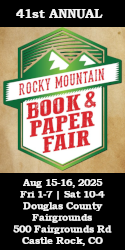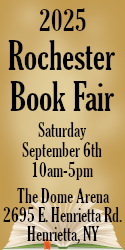The Literary Offenses of Robert B. Parker
Editor’s Note: The title of this piece is derived from a work by Mark Twain about James Fenimore Cooper and, as all but the lamest reader will immediately perceive, it is meant as a facetious allusion: the present writer reveres the established author…but, in these litigious days, the writer being a doughy schoolmaster and the author being a literate thug, it is important to clarify such things at first.
In 1985, having read all his books to date, I wrote a piece about Dick Francis for The Armchair Detective, celebrating the trademark Dick Francis protagonist as worthy for, essentially, never blaming others and never giving up-traits that I believe can be carried to a fault in life, but they make good literature; and I praised Dick Francis as “the reigning Phoenix,” Shakespeare’s phrase for the artist who with his protagonist bursts forth from his own ashes into new life. Doing so turned out to be ironic, for the cover of the issue in which that article appeared featured a photograph of Robert B. Parker, interviewed within, who at the time, although I had not read him, was an easy contender for the title with which I festooned Dick Francis, and surely now he has secured it. The next summer, I picked up a paperback Parker, I think at the suggestion of my sister (like him, a graduate of Colby College), and, hooked immediately, I began the collections, hers and mine, maintained and re-read with unflagging enthusiasm almost twenty years later.
Robert B. Parker and Dick Francis are markedly different stylists, of course, but they are working in the same genre; and I think today that Mr. Parker’s Spenser novels amount to one of the finest literary achievements possible in that genre. Though the truth sometimes turns for Spenser as it does for us all on seemingly trivial things—eating, drinking, and the choice between de-caf and caf with or without cream and sugar—he is a dynamic character, or at least far less static than the Francis hero (with the possible exception of Sid Halley, who after all appears in only two novels). Spenser’s relationship with Susan Silverman—quite the antithesis of static—is as far as I know a unique literary achievement, not only for its thirty-year duration but for its passion, its humor, its individuality, and its patent (though not obvious) eternal truth. His relationship with Hawk is a little out of my sphere (as his with Susan is not), but I regard that as a sort of primer on the answers to racism. I revere Robert B. Parker’s work, and I re-read it as I do Dickens and Wodehouse. He has the fictional staying-power (what Wodehouse once called “coming down with a Saga”) and to some extent the jokingly eclectic allusiveness of a Wodehouse; and he has the sociological and psychological and physiological living eye of a Dickens. Mr. Parker’s source is uniquely his own; but if, as a game, you sought a single literary source (apart from Raymond Chandler) for the Spenser books, I’d suggest you look at Dickens’s Our Mutual Friend. It’s all right there: the self-sufficient man and woman, their love, the madman, the mobster, the murderous attack, the police, the city (Parker’s Back Bay) and its snobs, The City (Parker’s State Street) and its money, the races and the racists…and, of course, the gentle but experienced mockery of the mossy inhabitants of the ivied walls and ivory towers of academia. (“The office of the university president looked like the front parlor of a successful Victorian whorehouse” is the first sentence of Parker’s first book, The Godwulf Manuscript, 1973. Bradley Headstone, in Our Mutual Friend, is the archetype of the mad schoolmaster.)
So, you may be asking, of what “literary offenses” am I about to make fun, and why? The “why?” is easy: the motive for generating the laughter is the laugh, as Christopher Frye has somebody say in The Lady’s Not for Burning, and Spenser’s own utterance—like his creator’s—is often governed by that unassailable truth. Despite what Officers Quirk and Healy and Samuelson may say, he’s just as funny as he thinks he is. (In Pale Kings and Princes he describes a chair, saying “It was ugly but it was uncomfortable.” Another very funny line is at the beginning of Chapter 10 of The Judas Goat:“What’s your name?” “**** my ***!” “Okay, ****….”) As for what“literary offenses”? Why, the mistakes, of course! Sir Arthur Conan Doyle, Henry Fielding, Dickens, Wodehouse…they all make mistakes about their own fiction, even forgetting names of their own invention. In the early novels, Spensers mentions his mother to Susan, but later we learn that his mother died in childbirth and Spenser was raised by his father and his mother’s two brothers, who moved east from Laramie when he was young. “Great minds forget alike,” wrote Ogden Nash on “The Adventure of the Speckled Band,” in which Sherlock Holmes addresses Helen Stoner, the step-daughter of Dr. Roylott, as “Miss Roylott”; and a nit-picker can find improbabilities, even impossibilities in their plots, and by so doing spoil both the point and pleasure of reading fiction. That is not my goal here. Writing extravagantly romantic first-person narratives that depend heavily on verisimilitude and the reliability of the persona, Robert B. Parker invites not critical attack but the pleasant game of catching him out, if we can. Surely he has an Editor, but it’s one who misses things. In Chapter 23 of Pale Kings and Princes, it’s eighty miles from Wheaton to Cambridge. In Chapter 29, it’s forty miles each way. (This is my kind of math!) In Chapter 31 of Potshot, Ronny is spelled both “Ronny” and “Ronnie,” but in Chapter 34 it resolves to “Ronnie.” These are merely editorial oversights, not major goofs, like the ones in Widow’s Walk, in which on page 149 Spenser puts a bullet through the roof of a maroon Chrysler that on page 164 is a black Chrysler. On page 115 of the same novel, Spenser pours pasta “through” a colander…getting every strand, I guess, unimaginably perpendicular. I wrote to Mr. Parker about that, asking culinary advice. No answer. Fair enough.
In Chapter 4 of A Catskill Eagle is another passage in which Parker is wool-gathering to a nicety. At the end of the chapter, Spenser and Hawk are on the run from the Mill River Police, in Spenser’s rental Buick Skylark. In the space of ten short paragraphs, we read the following narrative: “We were in the car, and Hawk drove…. Hawk laid the .44 in his lap. I was driving barefoot…. There was nothing on the road before us. The Skylark started to creep up past sixty. Hawk slowed to under fifty-five.” Now, apart from the obvious if trivial confusion of who’s driving we have the amazing juxtaposition of the Skylark speeding up and the Hawk slowing down; and when you remember that Spenser himself is the Catskill Eagle, it’s quite the traveling aviary.
Many years ago, when I regularly attended College Board conventions in Boston, one of the top-ranking officers of ETS wanted to go to the Union Oyster House, the oldest continuously-operated restaurant in America. He loved it, remarking four or five times during dinner that the place was “grandiloquent.” This is the kind of howler that Parker, in his irreverence for academia, would relish, and it’s a little embarrassing when Spenser tells us in Chapter 29 of Ceremony that from the revolving restaurant at the top of the Hyatt Regency Hotel in Cambridge “you got a grandiloquent view of Boston half the time.” Grandiloquent
Nowadays, the typical Putnam’s publisher’s disclaimer reads in part, “Names, characters, places, and incidents are the product of the author’s imagination or are used fictitiously.” So be it. I have long argued against the compulsion felt by some readers of Wodehouse to find historical or geographical counterparts, or “origins,” for the people and places in his novels. I don’t begrudge anyone his hobby, but such research seems to me an attack upon rather than an enlightenment of the creative genius. I don’t want to be guilty of that. But, for me, part of the charm of the Spenser novels is the Boston setting, and, even if it is “fictitious,” noticing errors about Boston in the books excites me. In Thin Air (Chapter 5), “Malone yanked the car down Arlington Street and turned left on St. James…. With the siren full on we went through Copley Square, and out Huntington Avenue.” Impossible. St. James Avenue ends at Arlington street, which runs one-way south: the turn had to be a right turn. In Hush Money (Chapter 55), Spenser says that Susan “started off toward the Ritz at a very fast pace. I followed her. We went in the Commonwealth Avenue entrance and across the lobby into the café.” No. Just to be sure, not having stayed at the Ritz more than about three times in three decades, I called them up. An extremely pleasant representative named Nicole (or maybe Nicola), perhaps responding to my killer telephone-smile, agreed that there is no Commonwealth Avenue entrance to the Ritz lobby, and never was. When I told her why I wanted to know, she was even pleasanter. Spenser, you old devil…. They all know you. Maybe next time we stay there the House Dick will show me his gun. But there’s no Commonwealth Avenue entrance.
As Robert B. Parker would be among the first to point out, if I could write a novel or even fabricate a plot I wouldn’t be teaching school. Picking holes in the plot of Bleak House or Our Mutual Friend, however, is not the work of an amateur, and I pay Mr. Parker the same tribute I pay to Dickens: how did Inspector Bucket originally connect Lady Dedlock with Jo the Crossing Sweeper? How did Bradley Headstone find Eugene Wrayburn? (I know the answer to that one, but it took three readings of the novel to be sure.) In Widow’s Walk, how did the killer get into the Louisburg Square house? And, most troublesome of all, in Potshot why did the guilty girl hire Spenser in the first place? Why?
The Parker plot, like a thing of beauty, is a joy forever, and far be it from me to mess with one. But in The Judas Goat there is a blooper I’ve savored for years, if one can savor a blooper. In Chapter 15 we read:
“Door’s locked,” Hawk said.
I kicked it open and Hawk went through in a low crouch…. Paul and Kathie were gone.
Two chapters later we read:
If we found Kathie or Paul, they’d seen Hawk and would be looking over their shoulder for him again.
Wrong. They hadn’t seen Hawk. I wrote to Mr. Parker about this, in cowardly fashion claiming that a wise-ass student had noticed it. His reply:
Dear Mr. Gould,
Tell the wise-ass student that even blind Homer nods.
He was thinking, of course, of the famous line in the Odes of Horace, Et quandoquidem dormitat bonus Homerus; but the line doesn’t say he was blind, and it doesn’t say that he nodded. It says that he was good and sometimes he slept; and even the good Parker goofs.
Another gem is in Pastime, one of the very best stories, I think. In Chapter 4, we get a fairly detailed description of Spenser’s breaking into Patty Giacomin’s house by removing the molding on the lock side of the front door and inserting a putty knife, and so on. Perfectly credible, even useful information. In Chapter 22, however, when Spenser wants a picture of Patty and Paul tells him there’s one at the house, and Spenser says, “Okay, let’s go out there and break in again and get it,” Paul says: “No need to break in. While we were there last time I got a key. She always was losing hers, so she kept a spare one under the porch overhang. I took it when we left.” Incredible! That Spenser didn’t deck the kid is a mystery to me. The key was under the porch overhang all along, as Spenser so carefully broke and entered.
From time to time, I suppose, we all forget where we parked. It happens to Spenser a couple of times, one of them fairly important. In Chapter 15 of Taming A Seahorse, on his quest for Ginger Buckey, Spenser visits Portland, Maine. “I parked along the restored waterfront on Commercial Street and walked up through the Old Port Exchange area to Congress Street.” It would have been a nice walk, comparable to Charles Street at the bottom of Beacon Hill in Boston. He passed “a bookstore that displayed the complete works of Thomas Merton in the window”—surely my old friend Allen Scott’s bookstore on Exchange Street. (Alas, not now: Allen operates at home on the computer, as I fear we all must in the end, and I seriously miss the store when I’m in town.) “Past Franklin Street, at the east end of Portland, the Magic Massage Parlor stood across the street from a store that sold scuba gear.” (My late wife and I once bought some scuba gear in that store, a present for her brother or perhaps his son. I wasn’t sure just what we were buying, but I don’t remember seeing the Magic Massage Parlor.) At the end of the chapter, after a thrilling encounter with a tall guy in a cowboy hat who had prominent upper teeth and no bottom teeth in front, Spenser says, “I went out of the room and through the reception area. The tall guy followed me. The threat of him was gone. He wanted his gun back. I got in my car and opened the window.” Well, the tall guy could have followed him all the way back to Commercial Street, a distance of about six or eight blocks, depending on where Spenser had found the fire hydrant to park on; but that ain’t the way it reads.
Of more consequence, potentially at least, is the parking problem in Chapter 47 of Sudden Mischief. The concern here is that Susan’s nut-case ex-husband, Brad, may turn up, posing a threat to her. Spenser is in his office, corner of Berkeley Street and Boylston; his car, presumably, is at home on Marlborough Street. “I put on my sunglasses and went out of the office and began to walk. After a while I ended up at the Harbor Health Club,” which is, reasonably, down by the harbor. He hits the heavy bag for a while, and after some banter Henry Cimoli tells him that Susan called to say that Brad was visiting at her house, which is in Cambridge. The following paragraph, beginning “The Central Artery was always problematic if you were in a hurry,” is one of Parker’s marvelous travelogues through the nightmare maze of Boston’s traffic problem, which people come from all over the world to study and avoid. It takes Spenser twenty-one minutes to get to Susan’s house on Linnaean Street. I’ve never tried it, but that’s pretty fast…even if you have your car.
Spenser gets about, far more than I do. I feel I can keep track of him in Boston, and even London, but when he comes to Maine I feel especially pleased. In Back Story, the latest novel, he at last gets to my native Kennebunkport…though I hope the ghastly woman he came to see does not typify for him the whole populace! He’s got Portland down just right; and I am always mighty proud when, in Pale Kings and Princes, he hi-jacks that trailer loaded with cocaine at the Kennebunk turnpike rest stop—though it gets billed only as the one “south of Portland.”
The title Sudden Mischief is a phrase from a line in The Faerie Queene, I think actually the only allusion in the novels to the poetry of Spenser’s namesake Edmund Spenser. I sometimes think that Mr. Parker’s allusiveness is not all Spenser’s: Robert Frost, T.S. Eliot, Wallace Stevens, Robert Browning, Emily Dickinson, Keats, Shakespeare: the fairly obvious and slim pickings of a man who justly would mock my own expertise, getting the quotations just a little wrong to annoy people in chinos, bow ties, tweed coats, and loafers. It’s good fun. That in the latest novel Spenser tentatively attributes to Auden lines that in an earlier book he knew to be Housman’s (“Malt does more than Milton can/ To justify God’s ways to man”) caught not only my attention but the attention of Roy Meador, who appears regularly in these pages. “Gotcha, Spenser!” he said in a letter; but, as I wrote back to him, I’m not so sure. It’s such an unlikely error, Auden being very little like Housman, that I wonder whether Mr. Parker, a born tease and a cheerfully unembittered anti-pedagogue, didn’t get it wrong deliberately to have a little fun at Spenser’s—or even our—expense. After all, going to all this trouble to point out mistakes in an oeuvre of such magnitude says more about me than about it. It’s rather like, as somebody once said of criticizing Wodehouse, taking a spade to a soufflé.
Still, here’s one more whack. In 1983, Robert B. Parker’s “A Spenserian Sonnet” was published by the Lord John Press in a limited edition of 100, beautifully printed by Patrick Reagh on handsome deckle-edged paper. Eventually I acquired Copy Number 8. The poem begins:
Susan’s gaze, a loving basilisk,
Transfixes me in vital glare…
and it ends,
For only in her compass am I entirely me
And only caught forever, am I entirely free.
There’s a pretty loud echo of Donne’s Holy Sonnet 14 here, but there’s nothing wrong with echoing John Donne, and on the whole the poem is compelling, in Spenser’s own voice, and a physically fine object. Thing is, though, it’s not a sonnet—or, it’s not a Spenserian sonnet, even though it’s a “Spenserian” “sonnet,” if you see what I mean. Let me explain, in a Spenserian sonnet:
O I have late at grand expense had fram’d
‘A Spenserian Sonnet.’ That ’tis not,
yet thilk was it in aduertisement nam’d
and in accordaunce thilk was it ybought;
For Spenser’s poem, howeuer finely wrought,
is yet no Sonnet in his feet or rime—
in form and figure fayre, and wel bethought,
feateously made, yet out of step and time.
And yet, what boots it in this Poet’s prime
his syllables to tell, and verse to scan?
fayre Susan in his eye, from crime to crime
he marks immortal footings as a Man.
On Pegasus who soar, none freer, fleeter,
lyke Hawk on high need pay no Parker metre.
I once had the nerve to send a copy of this effusion to Mr. Parker. His holograph reply, dated 6/8/89, reads:
Dear Mr. Gould
Your sonnet seems superior to mine and I hate that.
The goddamned thing even scans.
Thanks,
RBP
I treasure it. To paraphrase E.B. White: it is not often that someone comes along who is a good sport and a good writer. Parker is both.


























